Age doesn’t have to be a barrier. Rotherham powerlifter, Kelly Clark, was 54 when she made her international debut with Team GB at the 2019 World Championships in South Africa.
She placed fourth in her category and achieved a personal best – a huge feat for someone who’d only started competing 18 months before.
In December 2022, Kelly, now 58, brought home gold and silver medals from the Commonwealth powerlifting championships in New Zealand. She also has bronze and silver World Championship medals, was British champion in 2020, and All England champion in 2022.
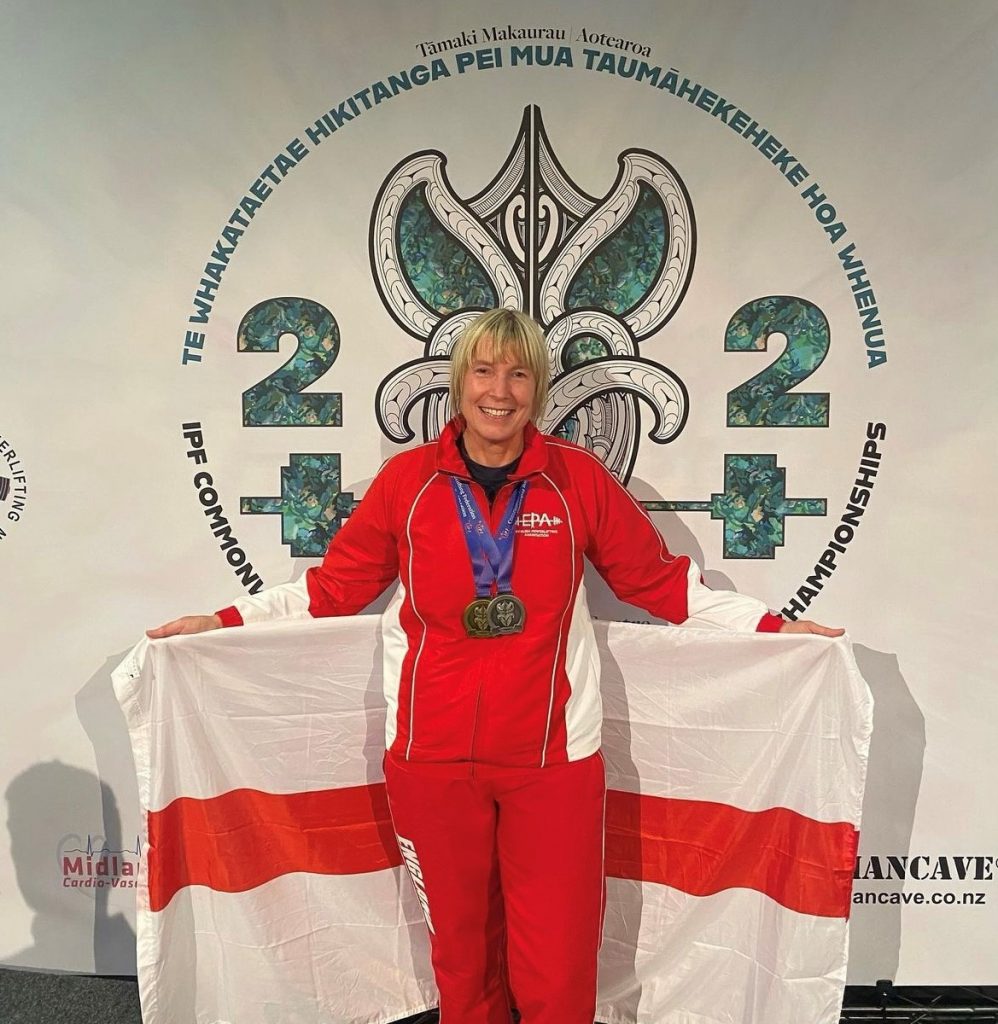
But for Kelly, competing was the last thing on her mind when she started lifting weights in 2014. Seeing a vast improvement to her health is her proudest achievement, the accolades just an added bonus.
Overweight, unfit and quickly approaching 50, Kelly had been put on medication to ease her painful arthritis that was impacting her mobility and daily life.
“My job at that time meant I spent a lot of time travelling the country, staying in hotels, having a buffet breakfast, service station lunch, dinners out, and a car full of sweets. I didn’t want to carry on like that and had to change my unhealthy habits or I’d potentially end up with chronic ill-health.
“But I didn’t like sport and hadn’t done any since school. I’d join a gym every January with all the good intentions but would only stick to it for three weeks. I hated cardio and running, and walking the dog was about all the exercise I did,” Kelly said.
She found a gym in Sheffield that offered high-intensity interval training classes which she liked, but her joints didn’t. One of the trainers suggested she lift weights instead.
“I told him I wanted to lose weight, not bulk up, but he just laughed at me and told me to try it first. I picked up a barbell and loved it from the go.”
Kelly lost three-and-half stone in 14 months, dropping from a size 18 to a size eight. But the main benefit for Kelly was that she was able to stop taking her arthritis medication after just four months of weight training.
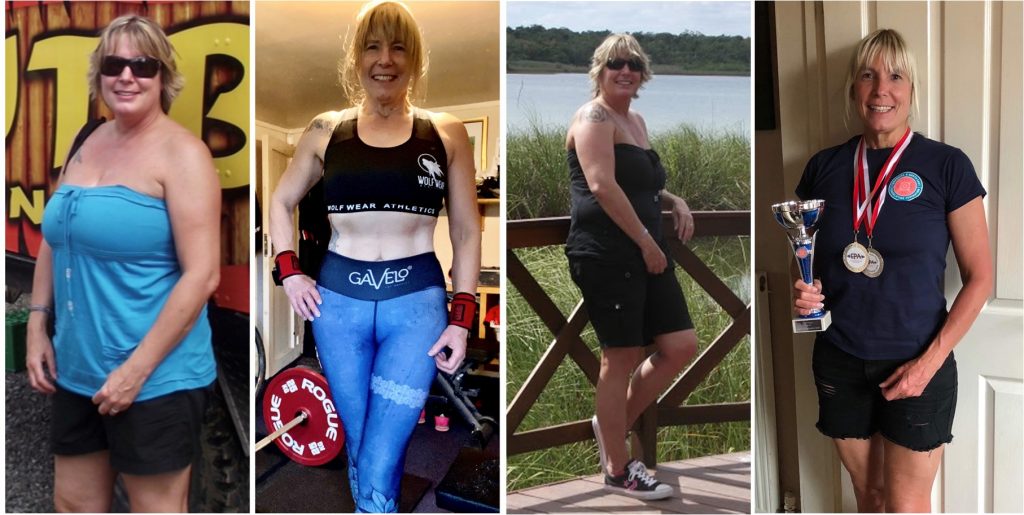
“It’s been eight years and I’ve only had to take painkillers a couple of times. I still have arthritis, but I work round it. If my hand or wrist is hurting, I listen to my body’s limitations and train other areas. I’m in the Masters II age category, which is anyone between 50 and 60, and recovery is harder and slower when you pass 40 so you have to be sensible and try not to max out before you reach the platform at the competition.”
Kelly’s journey to powerlifting podiums began in 2017 when she volunteered at the Special Olympics National Games when it came to Sheffield. She was asked if she had any specific sports she was interested in and said lifting – not even powerlifting as she didn’t know it as that at the gym. She got chatting to a lot of powerlifting referees who presumed she competed.
“I said I was too old for that, then they told me about people in their 80s and 90s who still competed. Then I said that I wasn’t strong enough. But they said powerlifting isn’t a measure of strength.
“Nobody can guarantee they’ll place as there are so many factors that can affect performance, from poor diet to a bad night’s sleep. There might be 100 people competing and only three podiums, so most people enter to beat their own personal best or know their technique is right, rather than to win a medal.”
After the games, Kelly kept in touch with some of the referees who kept cajoling her into competing. She finally gave in and signed up for her first competition in March 2018, aged 53.
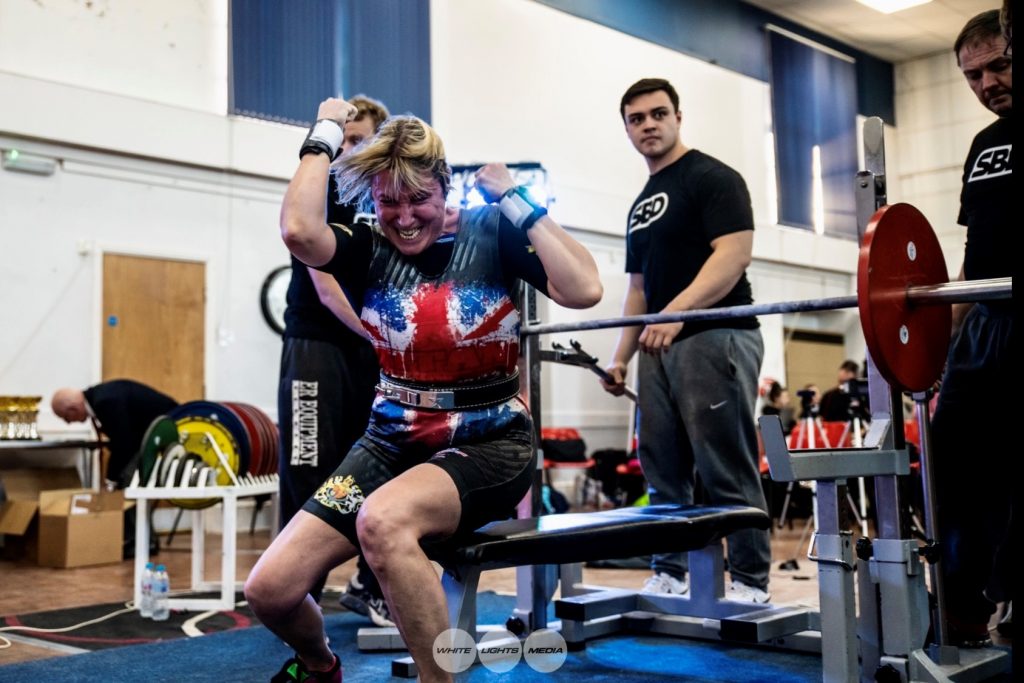
“I was asked what my goal was, and I said to qualify for the British Championships in 2019 in 18 months’ time. After the competition, a referee came up to me and said, ‘do you want the good news or the bad news?’ The good news was that I’d qualified for the British Championships, the bad news was it was the 2018 competition which was just three months away.”
Having caught the competition bug, Kelly continued to enter in the annual circuit as an unattached individual. But it was at her first All England competition in 2019 where she met former World champion and powerlifting legend, Marc Giles, who would take Kelly under his wing.
“He liked my attitude. I really didn’t care about placing, I was just competing because I loved it that much I’d be beaming my head off. He said I needed to come to Horncastle, and I didn’t even know what that meant. But it was basically him inviting me to train with him at Horncastle Powerlifting Club which was described as ‘being given the golden ticket’ by another more experienced powerlifter as the club is known for high quality training and coaching.”
Kelly tries to make the 140-mile round trip to Lincolnshire from her home in Wath once a week to train with Marc. He also writes Kelly a training programme to do in her home gym three times a week.
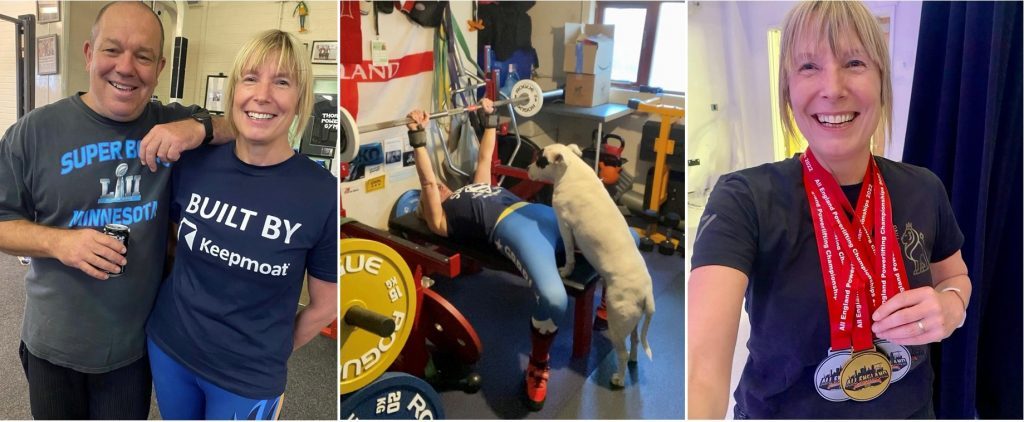
She mainly competes in the equipped bench press, which means competitors are allowed to wear a special stiff shirt that helps with overloading. Kelly often benches more than her bodyweight, winning bronze at the 2021 World Championships with a lift of 75kg and the gold Commonwealth medal with a lift of 60kg.
But Kelly says you don’t need fancy kit or heavy weights to make a change at home. She often encourages other people to train with litre-bottles of water, slabs in the garden, or a rucksack full of stuff.
“Your mindset is the most challenging part. It’s not always about motivation, its being committed and consistent that’s difficult. I’m the youngest of four sisters and was always the biggest; the others were shocked when I first started training as I was the least likely to do it. But I’ve stuck to it as it makes me feel good physically and mentally. If I train in the morning it makes me more focused for the day. If I’ve had a rough day, I’ll train at night to get rid of those pressures.”
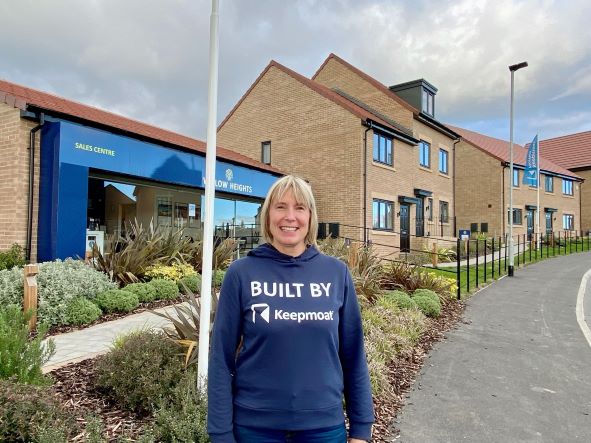
Kelly balances training with her work as people development and engagement manager for homebuilder, Keepmoat. With powerlifting being an amateur sport, athletes are self-funded so Keepmoat sponsored her journey to the Commonwealth championships by helping with the cost of flights and accommodation, as well as giving her paid leave to compete.
“As well as building houses, they have a big focus on social values and health and wellbeing. We came up with the tagline ‘Built by Keepmoat’ which sums up their ethos of supporting the community and transforming lives.”
Kelly says lifting has even helped with her role, inspiring others to achieve their own personal and professional goals.
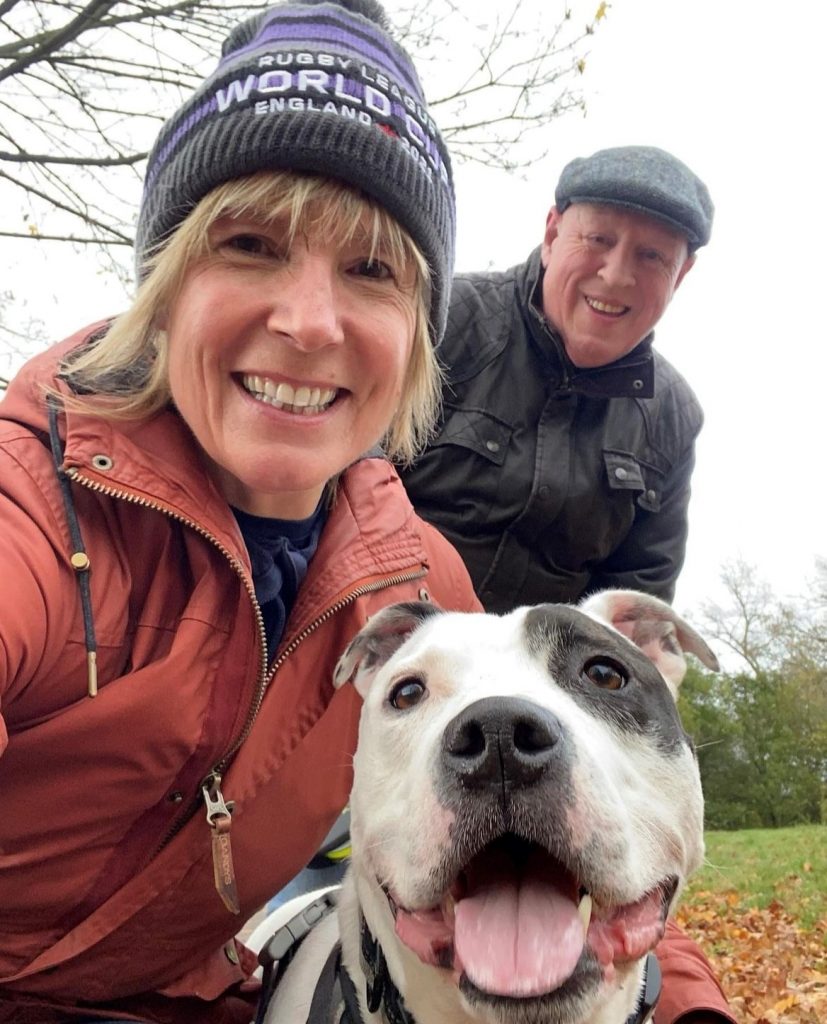
“People ask me how I fit it all in with training, work and relationships, but you have to find something you enjoy and be somewhat selfish. Don’t think about the hours you spend training; think of the benefits and how you want to feel.
“It also helps that I have a really supportive husband, Andy. He jokes that he’s got a different woman to the one he married, and he loves both. But he can see I’m much happier now.”






